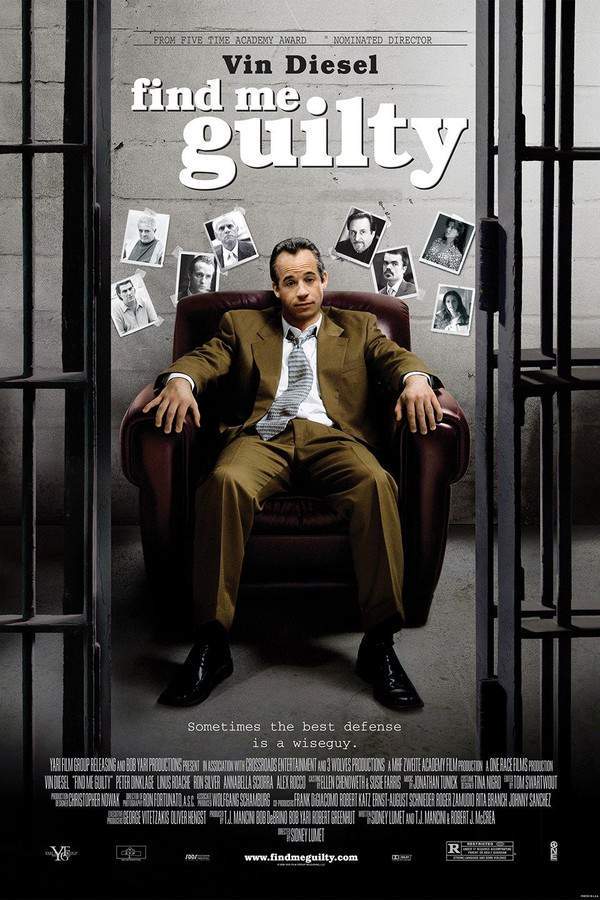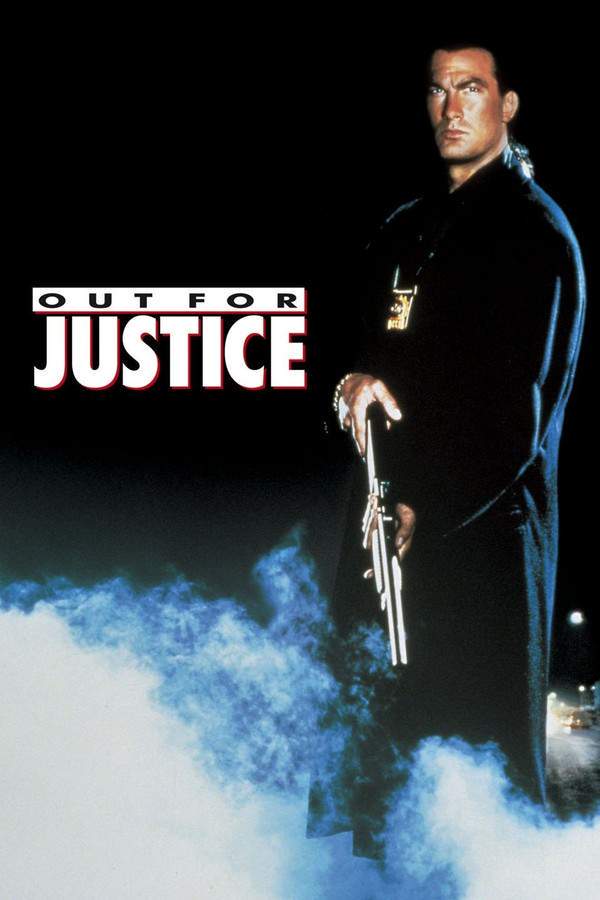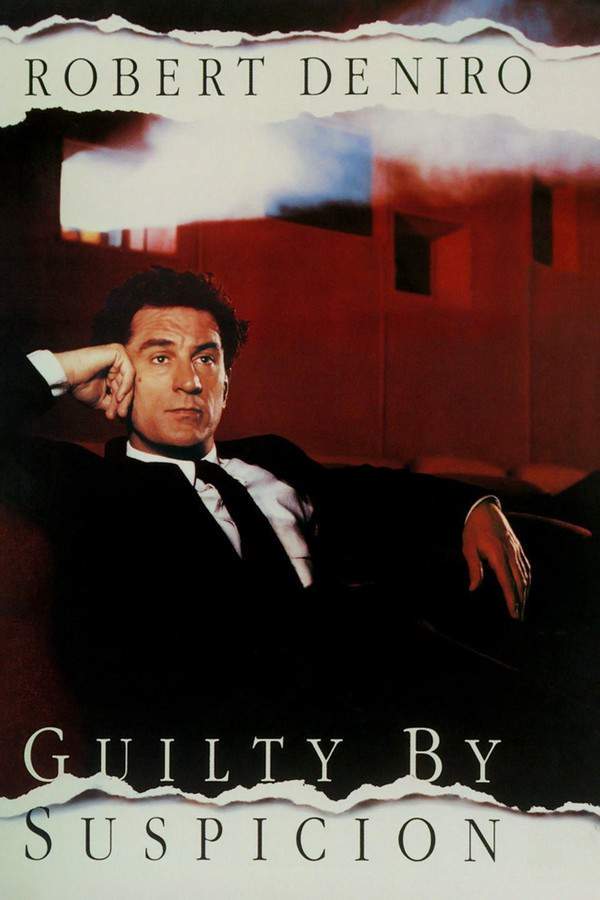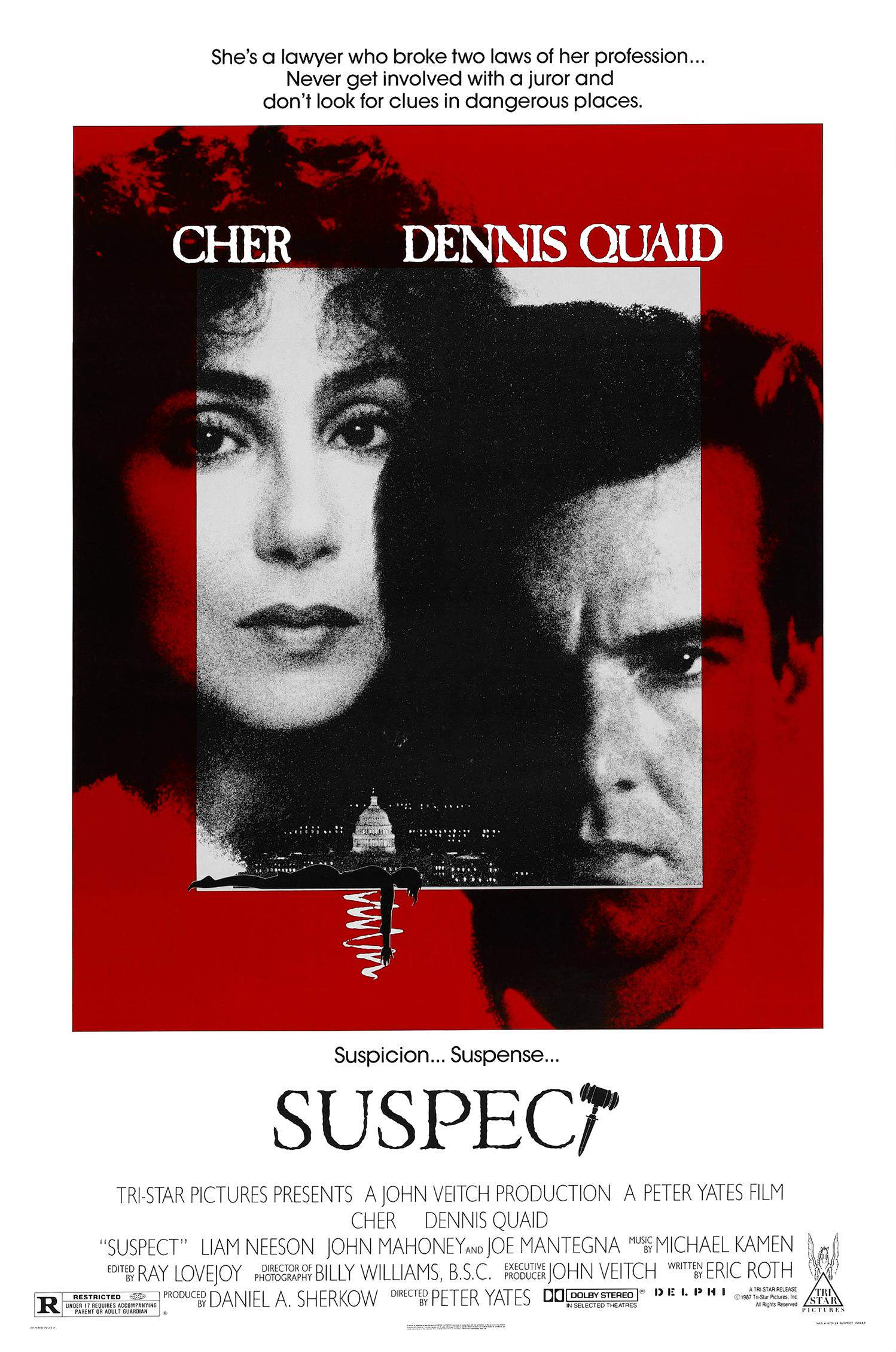
Find Me Guilty 2006
Directed by

Sidney Lumet
Made by

Freestyle Releasing
Test your knowledge of Find Me Guilty with our quiz!
Find Me Guilty Plot Summary
Read the complete plot summary and ending explained for Find Me Guilty (2006). From turning points to emotional moments, uncover what really happened and why it matters.
In the mid-1980s, New York is engulfed in a fierce battle against the Organized Mafia. Mafia soldier Jackie DiNorscio (Vin Diesel) and 19 of his associates find themselves in a drawn-out situation, patiently awaiting their federal racketeering trial that is set to unfold under The Racketeer Influenced and Corrupt Organizations Act (RICO). During this tense period, while out on bail, Jackie is brutally shot by his cousin, the drug-addicted Tony Compagna (Raúl Esparza). In a shocking incident, Tony enters Jackie’s home and fires four bullets at him while he sleeps, but his frantic shooting proves to be ineffective, allowing Jackie to survive.
Once in the hospital, Jackie remains loyal and refuses to identify Tony to the authorities, insisting, “I never saw anything.” Meanwhile, driven by fear of retaliation from the expansive mob family led by Nick Calabrese (Alex Rocco), Tony compromises and chooses to testify against Jackie for district attorney Sean Kierney (Linus Roache). Soon after, Jackie faces arrest and is given a sentence ranging from 22 to 30 years in prison after being framed in an unrelated drug operation orchestrated by the DEA.
Kierney attempts to pressure Jackie into cooperating with the government, hoping to facilitate a quicker release, but Jackie stands stubbornly against this suggestion. Frustrated with the outcome of his previous trial, he decides to dismiss his lawyer who had already charged him a staggering $250,000 and violently engages in the legal battle alone. The trial features prominent mafia figures, including Carlo Mascarpone (Frank Pietrangolare), Gino Mascarpone (Paul Borghese), Danny Roma, Alessandro Tedeschi (Nick Puccio), Tino Bellochio, and others who are heavily involved in various criminal activities alongside Jackie.
As the case grows complex with twelve defendants battling their stakes, Judge Sidney Finestein (Ron Silver) strongly advises Jackie against defending himself. However, Ben Klandis (Peter Dinklage), the lead defense attorney, agrees to assist Jackie, recognizing his innate charm that might appeal to the jury. Over time, though, Jackie’s arrogant demeanor begins to irritate the courtroom collectively. Klandis believes in Jackie’s potential to amuse the jury, stating that “a laughing jury is not a hanging jury,” but the ongoing tensions escalate.
In retaliation for Jackie’s conduct during the trial, Kierney orchestrates a series of punitive measures, revoking his prison privileges. Jackie’s conditions worsens when his lounger is removed, crucial for his back issues, causing sleepless nights. Even Jackie’s small victories, like gaining permission for lunch with fellow mobsters during court, incite jealousy and concern among his peers, particularly from Nick, who warns that Jackie could jeopardize their chances in court.
Months drag on as the court proceedings evolve into an exhausting marathon. Jackie confronts key FBI agents, disputing their claims and questioning their credibility, only to face fines for contempt. Meanwhile, Jackie seems to find common ground with Klandis, who worries that Jackie’s self-defense efforts might ultimately ruin their case.
As the trial reaches a boiling point, an undercover agent shares testimony about the mafia’s dealings. Jackie capitalizes on the moments of doubt, cross-examining witnesses and strategically discrediting testimonies that lean against him, particularly from his cousin Tony. After an arduous 21 months of testimony, the conclusion seems imminent.
When it finally comes time for the jury to deliberate, no one expects that in just 14 hours, they would return with a not guilty verdict on all counts. While his fellow defendants are greeted by their families and freedom, Jackie is led back to prison to serve out the remnants of his sentence. Nevertheless, he receives a hero’s welcome upon his return, as fellow inmates chant his name, recognizing his resilience.
As the film closes, we learn from title cards that the real-life Jackie DiNorscio served 17 and a half years in prison before his release in 2002, passing away from natural causes thereafter.
Find Me Guilty Timeline
Follow the complete movie timeline of Find Me Guilty (2006) with every major event in chronological order. Great for understanding complex plots and story progression.
The Mafia Conflict Begins
In the mid-1980s, New York is embroiled in a fierce battle against the Organized Mafia. Jackie DiNorscio and his associates are caught in the middle, awaiting a crucial federal racketeering trial.
Gunfire at Home
Jackie's life takes a dangerous turn when his cousin, Tony Compagna, enters his home and shoots at him while he sleeps. Miraculously, Jackie survives the brutal attack despite being shot at four times.
Hospital Loyalty
In the hospital, Jackie maintains his loyalty and refuses to identify Tony to the authorities. Despite the mounting evidence against his cousin, he insists, 'I never saw anything.'
Tony Testifies
Driven by fear of retaliation from the mafia, Tony decides to testify against Jackie. His cooperation with district attorney Sean Kierney places Jackie in a precarious position as the legal battles ensue.
Jackie's Arrest
Jackie is arrested and framed in an unrelated drug operation orchestrated by the DEA. He faces a daunting sentence of 22 to 30 years in prison, drastically altering his life trajectory.
Refusal to Cooperate
Despite intense pressure from Kierney to cooperate with the government, Jackie remains steadfast in his refusal. He decides to fight his case without a lawyer, dismissing legal help that cost him a staggering $250,000.
Trial Commences
The trial begins with a complex web of mafia figures involved, including Carlo and Gino Mascarpone. Jackie’s decision to represent himself creates a unique and challenging courtroom environment.
Courtroom Tensions Rise
As the trial progresses, Jackie's arrogant demeanor begins to interfere with his defense. Ultimately, his lead attorney Ben Klandis recognizes the challenge in maintaining jury sympathy amidst Jackie's behavior.
Punitive Measures
In retaliation for Jackie's conduct in court, Kierney imposes punitive measures that worsen Jackie's conditions in prison. These measures include the removal of a lounger essential for his back issues.
Confrontations with FBI Agents
Months into the proceedings, Jackie confronts key FBI agents, disputing their credibility. His challenges, however, lead to fines for contempt which further complicate his case.
Cross-Examinations Begin
As the trial nears its climax, Jackie capitalizes on the testimony of undercover agents to discredit key witnesses. His confrontations during cross-examinations strategically weaken the case against him.
Trial Conclusion
After an exhaustive 21 months of testimony, the jury finally deliberates. The courtroom atmosphere is tense as they prepare to deliver what everyone hopes will be a favorable verdict.
Verdict Delivered
In a shocking turn, the jury returns with a 'not guilty' verdict on all counts in just 14 hours. While his associates bask in freedom, Jackie is led back to prison to serve his remaining time.
Return to Prison
Upon returning to prison, Jackie receives a hero's welcome from fellow inmates. They chant his name, recognizing the struggle he faced during the trial and his ability to stand firm.
Jackie's Later Years
In the film's closing moments, title cards reveal that the real Jackie DiNorscio served 17 and a half years in prison before his eventual release in 2002. He passed away from natural causes shortly after.
Find Me Guilty Characters
Explore all characters from Find Me Guilty (2006). Get detailed profiles with their roles, arcs, and key relationships explained.
Jackie DiNorscio (Vin Diesel)
Jackie DiNorscio is portrayed as a tenacious yet arrogant Mafia soldier battling the legal system while remaining loyal to his family. His charm and charisma become assets in the courtroom, though his bravado often frustrates others. Despite the overwhelming odds against him, Jackie’s determination to fight for his innocence is a testament to his resilience.
Ben Klandis (Peter Dinklage)
Ben Klandis serves as Jackie’s lead defense attorney, recognizing the unique potential within Jackie to engage the jury. While struggling against Jackie's growing arrogance, Klandis holds onto hope that humor can sway the jury's favor. His support reflects a deeper understanding of the complexities involved in defending someone accused under RICO.
Find Me Guilty Settings
Learn where and when Find Me Guilty (2006) takes place. Explore the film’s settings, era, and how they shape the narrative.
Time period
Mid-1980s
The mid-1980s was a tumultuous period in American history, characterized by rampant crime and the rise of drug-related violence. Organized crime syndicates thrived during this era, leading to a series of high-profile arrests and legal battles. The legal system struggled to combat the powerful influence of the Mafia, setting the stage for Jackie's harrowing court battle.
Location
New York
New York serves as the bustling backdrop for this legal drama and organized crime tale. Known for its vibrant streets and rich history, the city becomes a battleground amid the fierce confrontations between law enforcement and the Mafia. In the mid-1980s, its urban landscape is marked by criminal activities and the palpable tension related to the drug trade.
Find Me Guilty Themes
Discover the main themes in Find Me Guilty (2006). Analyze the deeper meanings, emotional layers, and social commentary behind the film.
⚖️
Justice
The struggle for justice lies at the heart of 'Find Me Guilty,' as Jackie fights against a system that seems rigged against him. His unwavering loyalty and refusal to incriminate his cousin showcases the complexities of familial bonds under pressure. The courtroom becomes a stage for moral dilemmas, illuminating the harsh realities of a flawed legal process.
💼
Legal Struggle
Jackie's journey through the legal system underscores the theme of self-representation and the challenges faced by defendants. His decision to dismiss his lawyer in pursuit of personal advocacy highlights both courage and hubris. As the trial progresses, the complexities of navigating a RICO case add layers to the narrative, illustrating the intricacies of criminal law.
🤝
Loyalty
Loyalty is a central theme, as seen in Jackie's steadfastness to protect his cousin despite being shot by him. This unwavering fidelity raises questions about family ties and honor within the Mafia culture. Jackie's insistence on not testifying against Tony reflects a deeper understanding of loyalty in a world where betrayal is commonplace.

Coming soon on iOS and Android
The Plot Explained Mobile App
From blockbusters to hidden gems — dive into movie stories anytime, anywhere. Save your favorites, discover plots faster, and never miss a twist again.
Sign up to be the first to know when we launch. Your email stays private — always.
Find Me Guilty Spoiler-Free Summary
Discover the spoiler-free summary of Find Me Guilty (2006). Get a concise overview without any spoilers.
In the gritty streets of mid‑1980s New York, a sweeping federal crackdown pits a sprawling organized‑crime syndicate against an unrelenting legal machine. The city hums with the low‑level rhythm of loyalty, fear, and ambition, while the looming presence of the RICO statutes casts a long, cold shadow over every back‑alley conversation. Within this tense backdrop, the world feels both claustrophobic and expansive—every handshake could be a trap, every courtroom door a portal to an uncertain future.
At the centre of the storm is Jackie DiNorscio, a seasoned mob soldier who has already been serving a long prison term. When a massive indictment threatens to envelop his entire crew, Jackie faces a stark crossroads: stay true to the code that has defined his life, or embark on the daunting path of defending himself against the full weight of the justice system. His charisma and street‑wise instinct clash with the sterile precision of the courtroom, setting the stage for a high‑stakes battle of wills. Beside him stands Ben Klandis, a seasoned defense attorney who sees in Jackie both a perilous liability and a potential spark that could sway a jury.
The tone of the film balances the cold procedural rigor of a criminal trial with the simmering heat of mafia loyalty. The courtroom becomes a chessboard where legal arguments echo the power plays of the streets, and every glance carries the weight of unspoken history. As prosecutors, judges, and fellow defendants circle, the audience is drawn into a world where personal honor confronts institutional authority, and the outcome hinges as much on personality as on the law itself.
Can’t find your movie? Request a summary here.
Movies with Similar Twists and Themes
Uncover films that echo the narrative beats, emotional arcs, or dramatic twists of the one you're exploring. These recommendations are handpicked based on story depth, thematic resonance, and spoiler-worthy moments — perfect for fans who crave more of the same intrigue.
Featured on this page

What's After the Movie?
Not sure whether to stay after the credits? Find out!
Explore Our Movie Platform
New Movie Releases (2025)
Famous Movie Actors
Top Film Production Studios
Movie Plot Summaries & Endings
Major Movie Awards & Winners
Best Concert Films & Music Documentaries
Movie Collections and Curated Lists
© 2025 What's After the Movie. All rights reserved.








